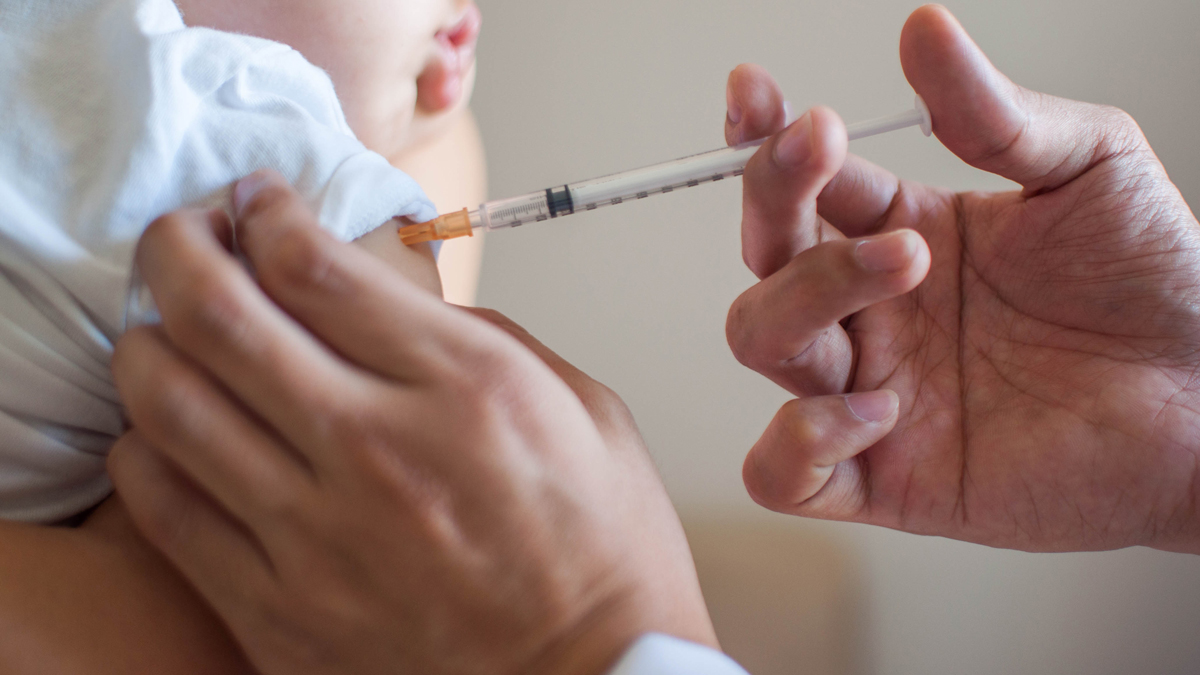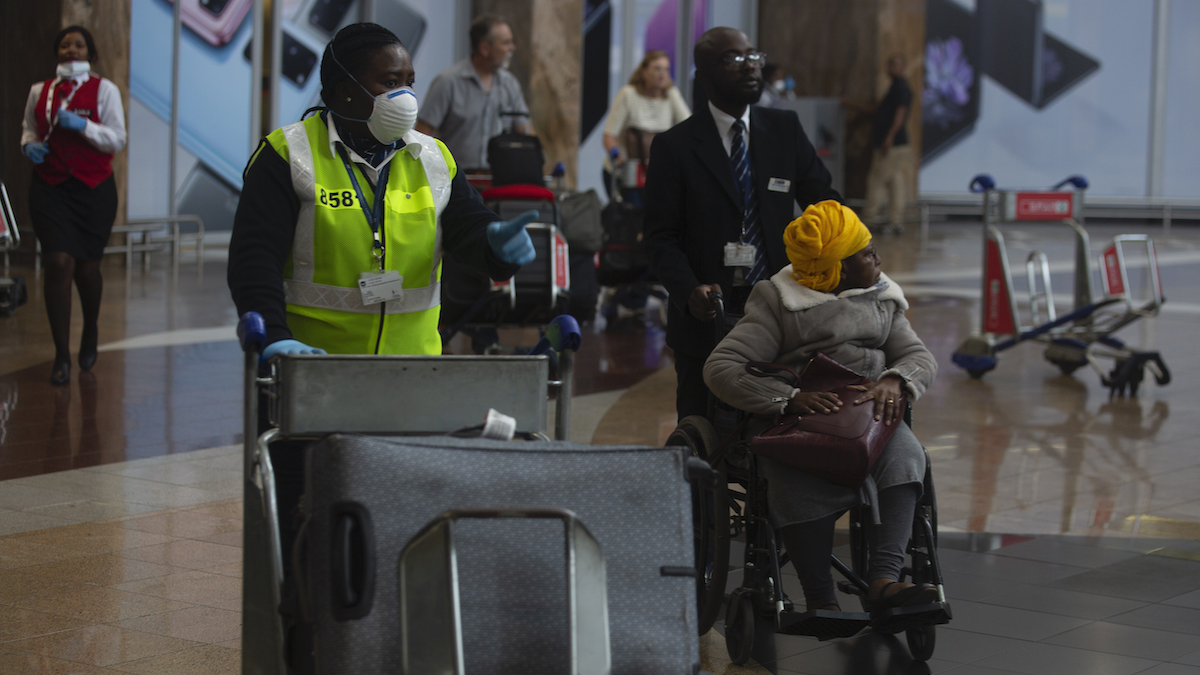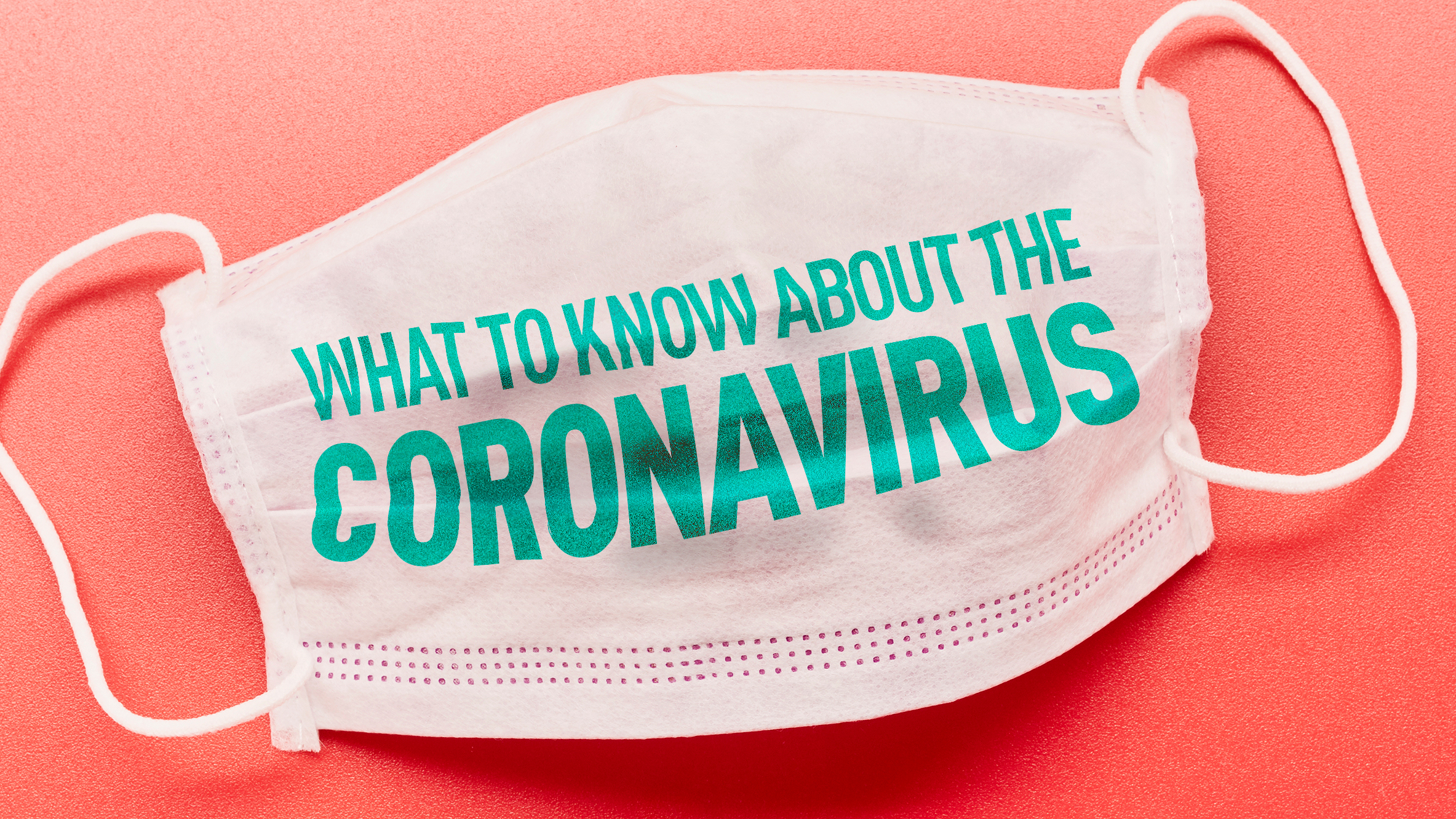Southern Europe buckled under the strain of the coronavirus pandemic Friday, with gasping patients filling sick wards in Spain and Italy and field hospitals going up in hotels and a convention center, as the global death toll surpassed 10,000 people worldwide.
In the U.S., California's governor barred nonessential movement for all 40 million residents, and the Trump administration warned Americans abroad to return home or risk spending an “indefinite” period away. And the income tax filing deadline was moved from April 15 to July 15.
The World Health Organization noted the dramatic speed of the virus' spread.
Get Connecticut local news, weather forecasts and entertainment stories to your inbox. Sign up for NBC Connecticut newsletters.
“It took over three months to reach the first 10,000 confirmed cases and only 12 days to reach the next 100,000,” the U.N. health agency said.
In Bergamo, the epicenter of the virus in Italy, cemeteries were overwhelmed. Sky News video from inside the city's main hospital showed patients lined up in a narrow ward, struggling for breath as doctors and nurses moved swiftly from one beeping machine to the next.
“When the virus arrived here, there was no containment and it spread through the valleys very quickly. ... Some said it was the normal flu. We doctors knew it was not,” said Dr. Luca Lorini, head of intensive care at the hospital, where nearly 500 beds were dedicated to people suffering severe symptoms of the virus, 80 of those in intensive care.
In the farm town of Fondi that has the largest wholesale produce market serving Rome and Naples, a new ordinance banned all but essential people from entering or leaving after 40 elderly residents became infected. At a convent on the outskirts of Rome, 19 of 21 nuns were infected, according to the Italian daily Il Messaggero. The Vatican published a decree absolving the sins of the faithful who are sick or in quarantine as well as their caregivers if they met certain conditions.
Wuhan, China, where the outbreak began, offered a ray of hope with no new infections reported for a second day in a row and only 39 cases reported nationwide — all of them brought from the outside, the government said.
The effects of a global economy grinding to a halt were also taking a toll, from millions of unsold flowers rotting in piles in Kenya to the slow emptying of the world's skies. The U.N. chief warned of a looming global recession “perhaps of record dimensions.”
Scientists advising the British government warned that restrictions on daily life may have to be in place for a year, with periods of less stringent and more stringent measures.
In the U.S., Congress worked to put together a $1 trillion emergency package that would prop up industry and small business and dispense relief checks to households of $1,200 for adults and $500 per child.
In a measure of how the fortunes of East and West have shifted, a Chinese Red Cross official heading an aid delegation to Milan castigated Italians for failing to take their national lockdown seriously. Sun Shuopeng said he was shocked to see so many people walking around, using public transportation and eating out in hotels, adding: “All people should be staying at home in quarantine.”
China also sent medical equipment to the Czech capital, Prague.
Governments are trying to balance locking down residents with the need to keep food, medicine and other essentials flowing. In Britain, the category of vital workers includes doctors, nurses and paramedics — and also vicars, truckers, garbage collectors and journalists.
French President Emmanuel Macron urged employees to keep working in supermarkets, production sites and other necessary businesses amid stringent movement restrictions.
“We need to keep the country running,” Macron said.
Worldwide, the death toll from COVID-19 passed 10,000 and infections exceeded 244,000, according to a Johns Hopkins University tally. Italy, with 60 million citizens, has recorded 3,405 deaths, exceeding the 3,248 in China, a country with a population over 20 times larger. Spain, second behind Italy in Europe, reported 1,002 deaths and 19,980 infections. The U.S. death toll rose to 206.
“Certain medical centers are suffering stress that is reaching the limit,” said Fernando Simón, director of Spain’s center for health alerts and emergencies. “The difficult days in which we must bear down are coming now. We must keep our focus.”
A convention center and hotels were being prepared as field hospitals for nearly 10,000 beds in Madrid, and France's military worked to build a makeshift medical center in the country's hard-hit eastern town of Mulhouse.
Although the illness is mild in most people, the elderly are particularly susceptible to serious symptoms. Italy has the world’s second-oldest population, and the vast majority of its dead — 87% — were over 70.
Jonas Schmidt-Chanasit, a virologist at Germany's Bernhard Nocht Institute for Tropical Medicine, offered another reason for Italy's high mortality rate: “That's what happens when the health system collapses."
More than 86,000 people have recovered, mostly in China. Recovery takes two weeks or so for mild cases but can be up to six weeks for those that turn serious, according to the WHO.
Iran's official toll of more than 1,400 deaths was rising quickly as well amid fears it is underreporting its cases. Tehran accused Washington of helping spread the virus by retaining sanctions that prevent it from importing desperately needed medicine and medical equipment.
"While the U.S. is trying to curb the virus internally, it is helping the spread of the virus externally," Iran's U.N. mission said in a statement.
Perry reported from Wellington, New Zealand. Associated Press reporters around the world contributed.





